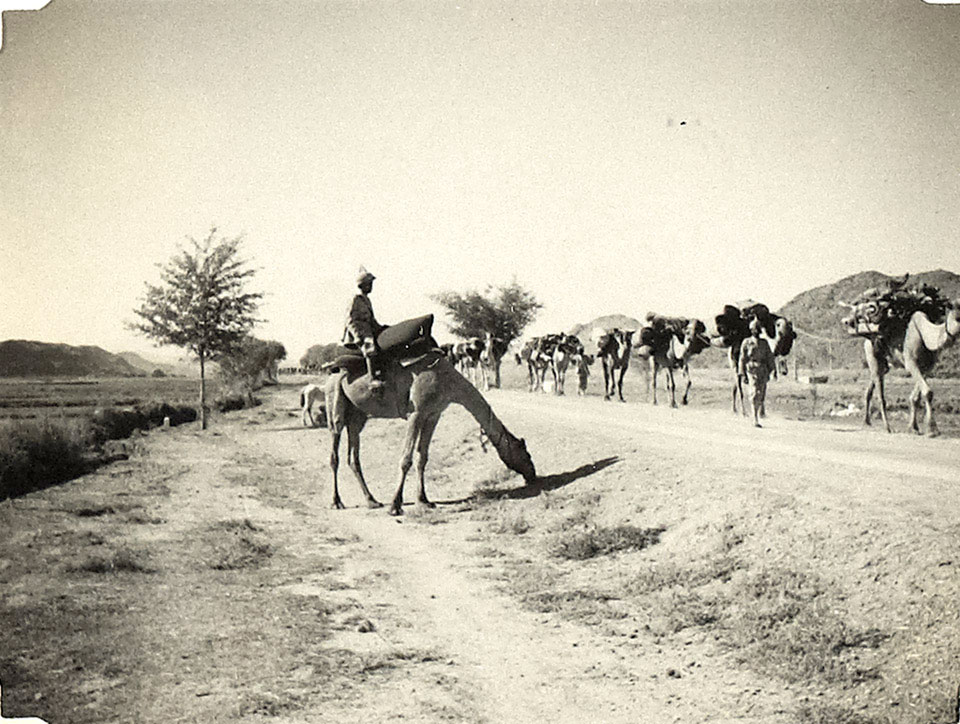
Online Collection
« Prev - 1 of 1 results - Next »
'But it's everlastin' waitin' on an everlastin' road for the commissariat camel an' 'is commissariat load', North West Frontier, India, 1936
Photograph, India, North West Frontier, 1936.
The quote above, which captions two photographs of Indian Army pack camels, is taken from Rudyard Kipling's poem, 'Oonts!'. 'Oont' is a derivation from the Hindi word for camel. The poem is subtitled 'Northern India Transport Train' and catalogues the faults of the commissariat camel, 'a devil an' a ostrich an' a orphan-child in one'.
In late 1936 there was growing agitation against British rule in Waziristan, led by the Waziri leader Ghazi Mirzali Khan Wazir, 'the Fakir of Ipi'. In response the British launched a military operation into the Khaisora Valley, hoping that a show of strength alone would suffice to reduce unrest. However, the two main columns of troops met stiff resistance and their supply lines were disrupted, forcing them to retire. The operation's failure triggered a wider insurrection and the ensuing guerrilla war drew in more British and Indian forces. Over 30,000 troops, together with aircraft and armoured cars, were deployed to the region. Violence subsided in late 1937 and after brief flare-ups in 1938 and 1939 the North West Frontier was relatively quiet until India became independent in 1947.
From an album of 347 photographs compiled by Captain (later Major) Wynne Howes-Roberts, 1st Battalion 13th Frontier Force Rifles, India and UK, 1936-1937.
NAM Accession Number
NAM. 1997-12-12-44
Copyright/Ownership
National Army Museum, Out of Copyright
Location
National Army Museum, Study collection
Object URL
https://collection.nam.ac.uk/detail.php?acc=1997-12-12-44

